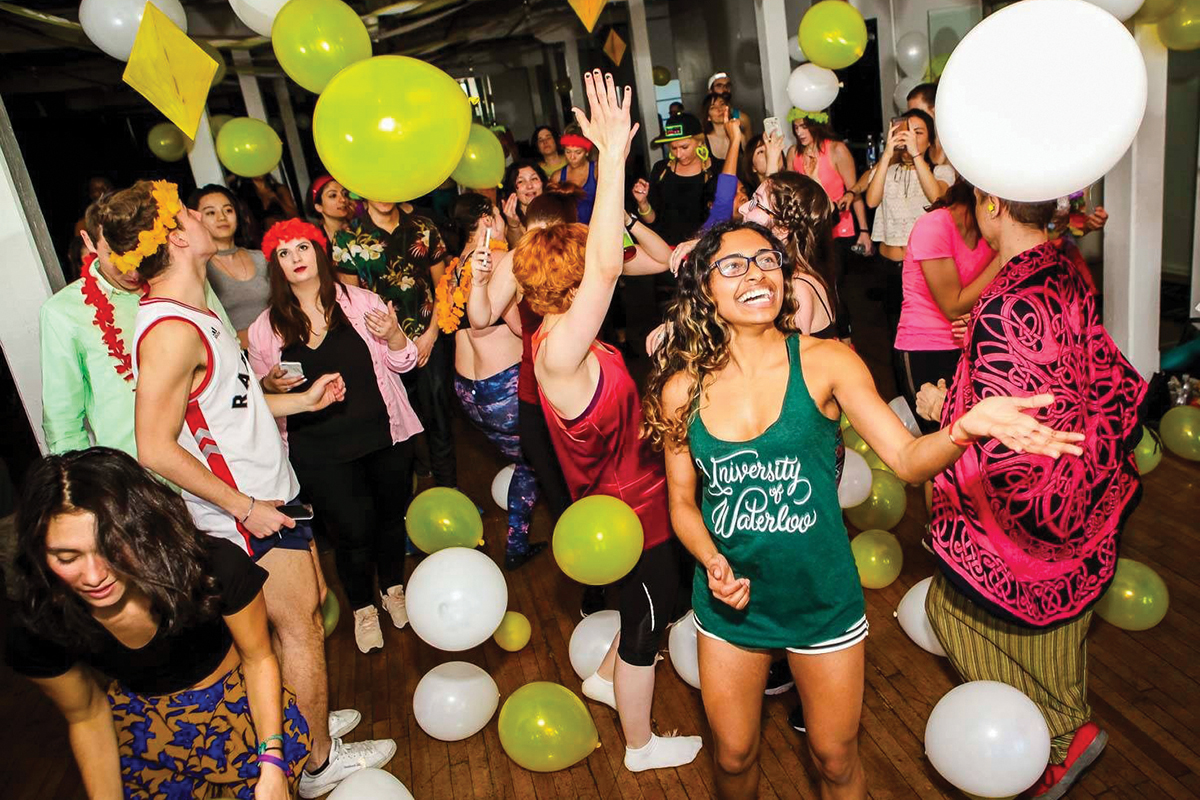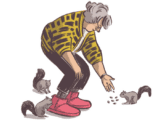On the second Saturday of each month, 60 to 80 people arrive at Yoga Village, a rented space inside Toronto’s Roncesvalles United, for a night of wild dancing. After paying $25 at the door (or $20 in advance), participants are ceremoniously smudged and handed a paper cup with an elixir of coconut water and berry infusion to boost their energy for a 90-minute ecstatic dance session to a DJ’s music. Before they bust a move, there’s a half-hour of guided meditation and yoga, and alternative practitioners offer reiki and Thai massage services to help folks limber up.
The rules are simple: no talking, no cellphone use — and no drugs or alcohol. Also, everyone dances barefoot. The night ends with an “om” mantra and socializing over a selection of vegan baked goods.
You may unsubscribe from any of our newsletters at any time.
“The space people are coming into is sacred, and we are there to elevate our spirit through movement,” says Liz Diaz, 37, who founded Conscious Dance in 2013. She creates a “non-secular, all-inclusive spiritual container” for people who want to express themselves through dance. “We live a lot in our minds and not so much in our bodies. The ritual of dance reminds us to live deeply.”
Spirit-boosting dance gatherings are a growing global trend, led by millennials who are forgoing binge drinking for a more Buddha-like approach to partying. “Ditching the hooch in favor of clarity,” as the Guardian puts it.
Two pioneers in the international “conscious clubbing” scene are Daybreaker and Morning Gloryville. Their sober, drug-free morning raves have been attended by several hundred thousand people in dozens of cities around the world, including Toronto and Montreal. Marianne Bulger, who helps produce Daybreaker events in Toronto, says “wellness and self-expression” are the focus of these joyful a.m. dance extravaganzas, which can also include entertaining extras such as fire throwers, Hula Hooping and pillow fights. She notes the parties are especially safe spaces for women — no talking means no pickup lines. “They’re not like typical bars where, almost without fail, I am touched without my permission on the dance floor.”
And if you think you can’t dance? Doesn’t matter, says Bulger. “You can spin in circles for two hours. No one is going to judge you.”
Not everyone is enamoured with sober dance parties. Canadian cultural critic Scaachi Koul called them “boring” on a CBC Radio segment, dismissing morning raves as “a seance with your feelings.” She said the event she attended was rife with cultural appropriation, including a white woman sporting multiple bindis on her forehead and a white man wearing a headdress. “It was very aerobic” was the best thing she could say about it.
Conscious clubbing is part of a larger social movement of people seeking communal connection through clean living — getting wholesome instead of getting wasted. In New York and Los Angeles, there are juice crawls instead of bar crawls and booze-free “enlightertainment” events such as rooftop moonlit yoga, “mindfully curated” variety shows and the Conscious Family Dinner, which aims to nourish body and soul with laughter yoga, “collective breath work” and kale salad.
Gatherings like these allow people to “be more conscious about how they party,” says Bulger. “They prove you don’t need to be inebriated to have the best time ever.”
Inspiration over intoxication: it’s a whole new kind of happy hour.
This story originally appeared in the November 2017 issue of The Observer as part of the regular column “Spiritual but Secular.”













